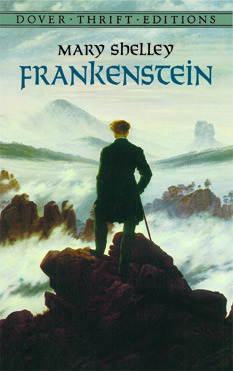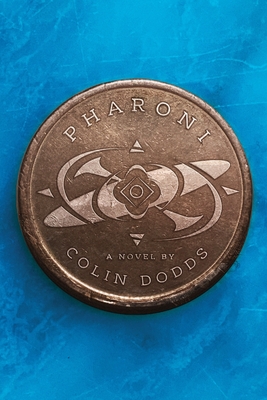 At
once a Gothic thriller, a passionate romance, and a cautionary tale about the dangers of science,
Frankenstein tells the story of committed science student Victor Frankenstein. Obsessed with
discovering the cause of generation and life and bestowing animation upon lifeless matter,
Frankenstein assembles a human being from stolen body parts but; upon bringing it to life,
he recoils in horror at the creature's hideousness. Tormented by isolation and loneliness,
the once-innocent creature turns to evil and unleashes a campaign of murderous revenge
against his creator, Frankenstein.
At
once a Gothic thriller, a passionate romance, and a cautionary tale about the dangers of science,
Frankenstein tells the story of committed science student Victor Frankenstein. Obsessed with
discovering the cause of generation and life and bestowing animation upon lifeless matter,
Frankenstein assembles a human being from stolen body parts but; upon bringing it to life,
he recoils in horror at the creature's hideousness. Tormented by isolation and loneliness,
the once-innocent creature turns to evil and unleashes a campaign of murderous revenge
against his creator, Frankenstein.
Even if one hasn't read the book or seen any of the numerous film adaptations, it would be difficult to believe that anyone in Western Civilization had not at least heard about Frankenstein in some fashion. It is a classic tale already two centuries old that will live on for centuries to come.
If you haven't read the book, it bears little resemblance to the majority of films that were inspired by it. Most films devote significant screen time to portraying how the monster was created and how Frankenstein is thrilled with his creation. Frankenstein tries to educate it, make it more human, but the process is frustratingly difficult. Said creation then runs amok, much to Frankenstein's chagrin. The films are typically a warning about the dangers of science run amok.
But the book spends scant time on the monster's creation. We're given Frankenstein's motivations for reanimating the dead (grief over his mother's death) and his research into the matter—primarily reading ancient, discredited tomes—but no mention of where he got body parts or what process provided that spark to reanimate the flesh. It's just handwaved onward, not important. And then when the monster is created, Frankenstein rejects it outright. It is so hideous an abomination that he can't stand to be in the same room with it and drives it away.
Shelley attacks the canard that beauty is good and ugliness is evil. The monster is attacked by all who gaze upon it for no reason other than it is so hideous it must be evil. The monster secretly provides firewood and game for a poor family of seemingly kind people, but they attack it on sight. Later, after the monster learns how to speak (No, not "Fire bad!"), it engages with Frankenstein in debate, slinging purple prose in his face, lamenting how lonely it is because of its wretched existence. But Frankenstein can't get past the ugly and rejects the monster again and again.
Naturally, all of this rejection is too much for the monster. It resorts to committing evil deeds which only incense Frankenstein's animosity towards the monster. Ultimately, the monster feels that negative attention is better than no attention and torments its creator further.
Sure, Frankenstein blames himself for creating the monster. He hides this fact from people for years, all the while crying out to the stars about his woe and misery and longing to be with his love and his wonderful family. But ultimately, he never accepts the blame for his true crime: rejecting his creation upon its birth. Think of it this way: If a parent rejects his/her child all of that child's life, never shows that child love, what sort of person will that child grow up to be? The rest of us would think that parent was a lousy human being. Frankenstein is no different. But instead, Captain Walton, who meets Frankenstein while he's out in pursuit of the monster, showers such slavish admiration upon the man that I swear he was smitten by him, regardless of what Frankenstein told him that he'd done.
Frankenstein is the true monster here, not his hideous creation. I'll take the Hollywood version of Dr. Frankenstein. At least his twisted heart was in the right place.
3 stars
By the way, Young Frankenstein was the best of them all.
\_/
DED
 When
the body of Harry Injurides - playwright, provocateur and bodybuilder - washes up on a beach, his
friends are shocked, but not altogether surprised. But when they meet to mourn Harry, he shows up
and says he's been resurrected.
When
the body of Harry Injurides - playwright, provocateur and bodybuilder - washes up on a beach, his
friends are shocked, but not altogether surprised. But when they meet to mourn Harry, he shows up
and says he's been resurrected.